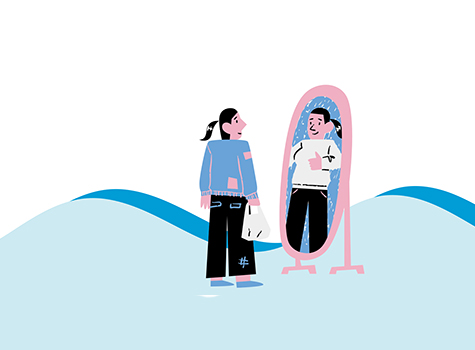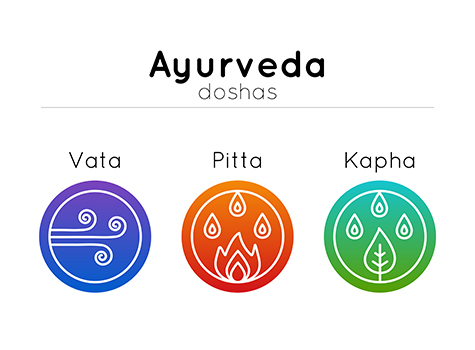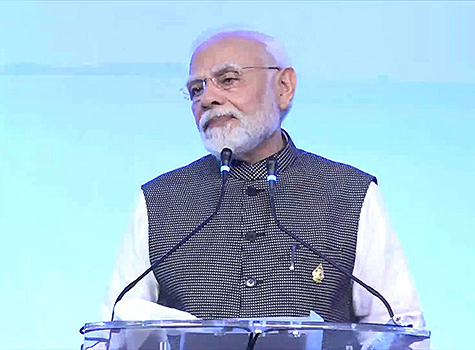
“Live comfortably, but not extravagantly.” It was 1980, and I was a starving student standing in freezing rain at a telephone booth being lectured by my dad from Thailand.
I was a father myself when a dozen years out from that conversation, I had an epiphany looking at my dad the economist handwriting his weekly newspaper column on a clipboard while lounging in his retirement dream – his bed. You see, lots of things had happened in the oddly smooth course of my life that I was totally clueless about until life punched me in my blue collar gut. I was born literally 13 years after the partition of India. The educated elite who were brought up in prestige colleges in colonial India were off to Ivy League educations and returning to lead the country into a promising future.
These were days when Pakistan’s handsome general president would entertain people like Jackie Kennedy and actually airlift gift racehorses to America for her. Those were days when America threw ticker-tape parades for Pakistan’s leadership during Washington state visits. With the best airline in Asia, open trade with Russia, and an extremely cozy relationship with America struggling to find a cold war strategy for Asia, Pakistan had the best of all worlds.
But the world of parenting is a stranger animal. Coming straight out of the University of Chicago with a shiny PhD degree, my father had to maintain a lifestyle commensurate with what he had just left behind in the New World. There had to be entertainment, the high fashion, the newest innovations, the burgers, the ice cream, the car, the drive-in theaters … probably even the secret high-dollar scotch tucked under the dining room cabinet.
I spent my childhood in the bubble that was trying to make Pakistan look like America—minus the wages to support the lifestyle. With large rental homes and servants and Chinese dinners and the newest cars, my dad’s journey from being Chair of the Sociology department in Karachi to a Deputy Secretary in the government in the new glistening jewel of a capital that was Islamabad quickly spelled trouble.
I of course played carefree through the growing pains for this new nation—and the jetset technocrats who were supposedly going to make the nation the pride of Asia. By 1968, when I was about 8-years-old, I remember my mother having conversations with relatives about “overdraft” at the bank. I wasn’t sure what it was, but my mom usually sounded dire talking to relatives about that blot on my dad’s existence.
And then mysteriously, when my dad accepted a position with the UN in Thailand in 1972, I remained equally clueless as to why he might need ten-fold the income to pay off those overdrafts that had been supporting our lifestyle for a dozen years. Strangely, we returned to Pakistan again in just a couple of years, maybe his debts then paid, and with an offer for a much more senior government position.
Then the bottom fell out of the world of country clubs, discos, rock music, Playboy Clubs, and liquor stores that was Pakistan until the instant the Soviets invaded Afghanistan, and an insidious shift in US policy happened that turned the country into a fundamentalist CIA-financed playground to defeat communism. The aggressive, sexy, charming, intelligent, arrogant Prime Minister Z.A. Bhutto was imprisoned and executed by a US financed general, and we as a family, in protest, trekked back to Thailand on UN assignment #2.
This story, of course, is much more complex than my father, who was depressed and drinking. It is more complex than my mother, who was depressed and sitting alone in a foreign country every night. It is more complex than children leave home and getting scattered all over the planet, leaving you afraid, disoriented…leaving you even more depressed.
While an entire country got derailed by a brutal international chess game, we as a family slowly fell into a wintry dysfunction that would take years to heal. And it was there, on a collect call from a phone booth in Charlotte, NC, on a cold winter’s eve that I heard my dad’s voice on the other end:
“Live comfortably, but not extravagantly.” I was a fool then as I am now. A global political monster had swallowed his prestigious career and he was sitting alone in a tiny office on the 14th floor of a UN building, surrounded by a petty and useless bureaucracy that simply showed up to draw a large paycheck—and for no other reason; for no higher cause.
It’s really taken me decades to realize that my father sacrificed himself using a double edged sword of geo-politics and pure love. He rotted at an international organization when he was so well known in Pakistan that he would simply tell me to mail him anything at “Jillani, Islamabad, Pakistan” and it would get to him (and it did). That was how enormous that burden was, when in those days, broken and having chest pains, he returned to Pakistan, and upon my grandfather’s death, finally inherited a pretty tidy amount from an old man everyone thought was a hermit poet living in a two room house.
But a leopard and his spots, and in my quiet, smiling father, perhaps, the sheep and his wool, there were no options but to share what he had with whoever came to his door for help. This economist, moving billions of dollars to save nations, he didn’t have a plan beyond making sure my mother had “comfortable” savings to maintain her lifestyle after he was gone.
I am writing this approaching the holiday season. I have a couple of thousand dollars saved. I am comfortable enough without them. I know no other way to live.
———-
Ahsen Jillani a former editor and publisher, is originally from Islamabad, Pakistan, and now lives in Mint Hill. He owns Must Media, a PR company focusing on both political and corporate clients.
Posted: Monday, January 13, 2020



